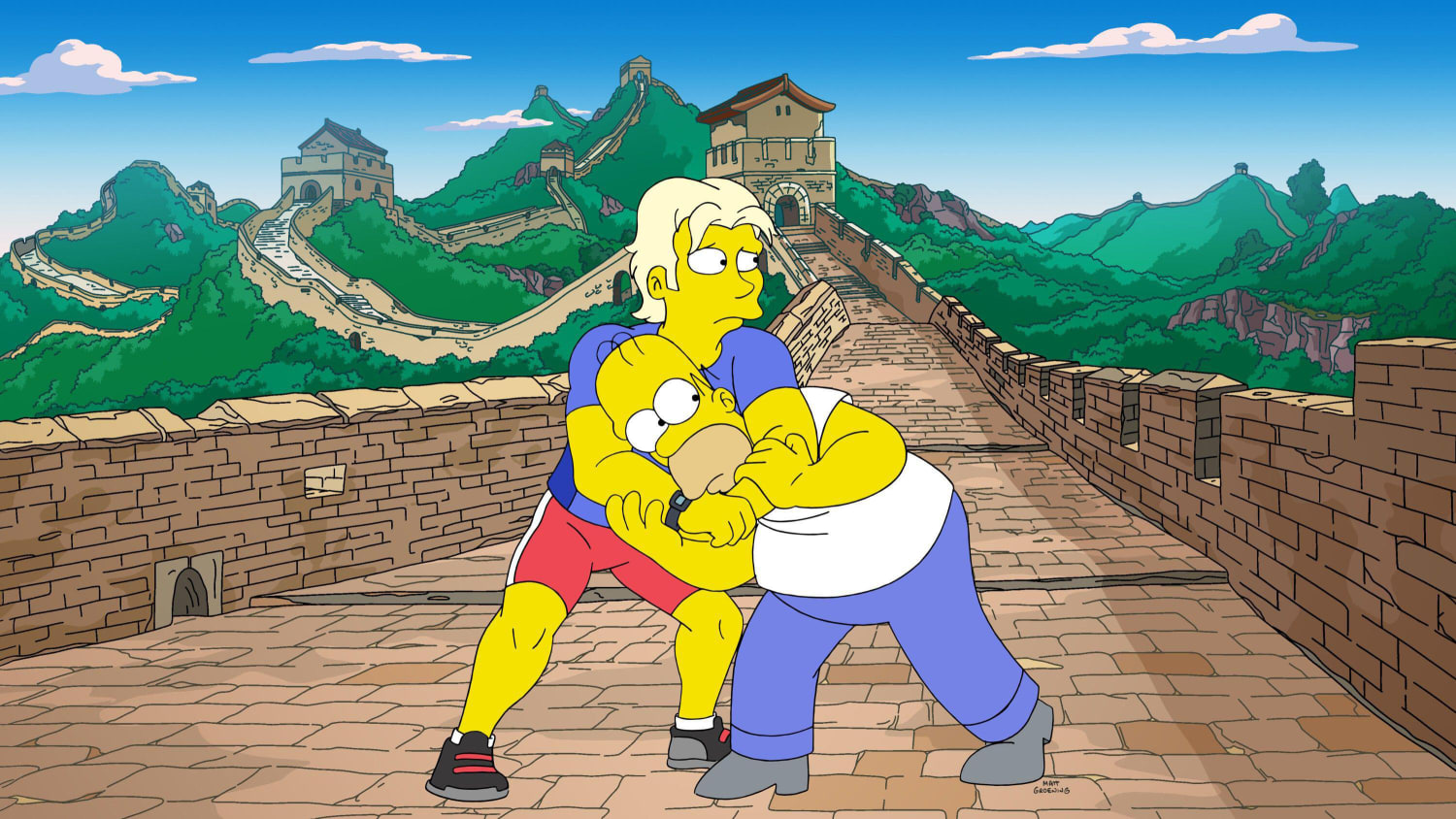[ad_1]

HONG KONG — An episode of “The Simpsons” that refers to “forced labor” in China has been cut from Disney’s streaming service in Hong Kong, where a national security law has raised growing censorship concerns.
NBC News confirmed that the episode — “One Angry Lisa,” the second episode of the current season — was not available on the Hong Kong version of the Disney+ streaming service, but it was not clear when it had been removed.
The absence of the episode was first reported by The Financial Times.
In one scene of the episode, the character Marge Simpson is in a virtual bike class during which the instructor shows images of China’s Great Wall and says: “Behold the wonders of China: bitcoin mines, forced labor camps where children make smartphones.”
The Chinese government denies allegations of forced labor, as well as accusations that Hong Kong’s freedoms have eroded under the national security law, which Beijing imposed in 2020 and says was necessary to restore stability after months of anti-government protests.
This is the second “Simpsons” episode with an unflattering China reference to be cut from the streaming service in Hong Kong, a former British colony that was promised a high degree of autonomy when it returned to Chinese rule in 1997. The previous episode, which refers to the 1989 Tiananmen Square crackdown and originally aired in 2005, has not been available in Hong Kong since Disney+ launched there in 2021. The service is not available in mainland China.
Disney declined to comment publicly when approached by NBC News. A spokesperson for the Hong Kong government said Tuesday that its Film Censorship Ordinance, which was amended in 2021 to allow officials to bar films deemed “contrary” to national security interests, did not apply to streaming services and that it did not comment on individual business decisions.
The spokesperson added that the four offenses established by the national security law — subversion, secession, terrorism and collusion with foreign forces — and the associated penalties were clearly defined.
“Law-abiding people and organizations will not unwittingly violate the law,” the spokesperson said.
Disney has a number of business interests in China, including a theme park in Hong Kong.
Two films from Disney-owned Marvel Studios are being released this month in mainland China, the world’s second-largest movie market after North America, ending an apparent ban that lasted more than three years.
Disney’s removal of the “Simpsons” episode could have been an act of self-censorship, said Kenny Ng, a film censorship expert at Hong Kong Baptist University.
“The company may have proactively removed any potentially offensive images or narratives from its products and streaming service to play safe for its future business in China,” he told NBC News in an email.
Carina Cheng contributed.
[ad_2]
Source link
